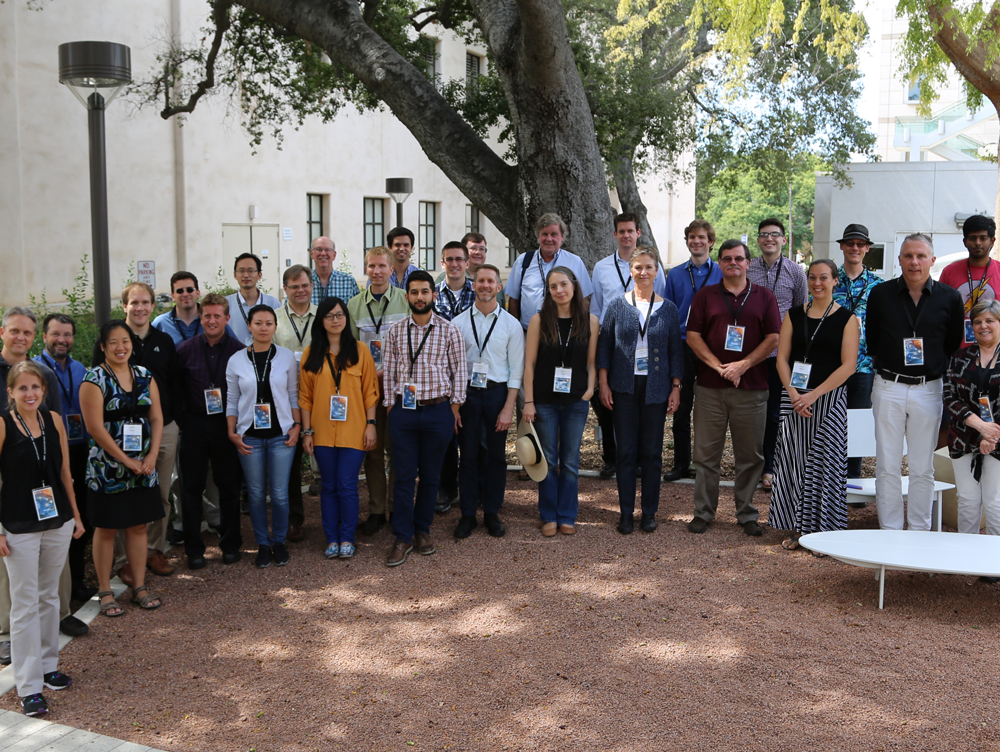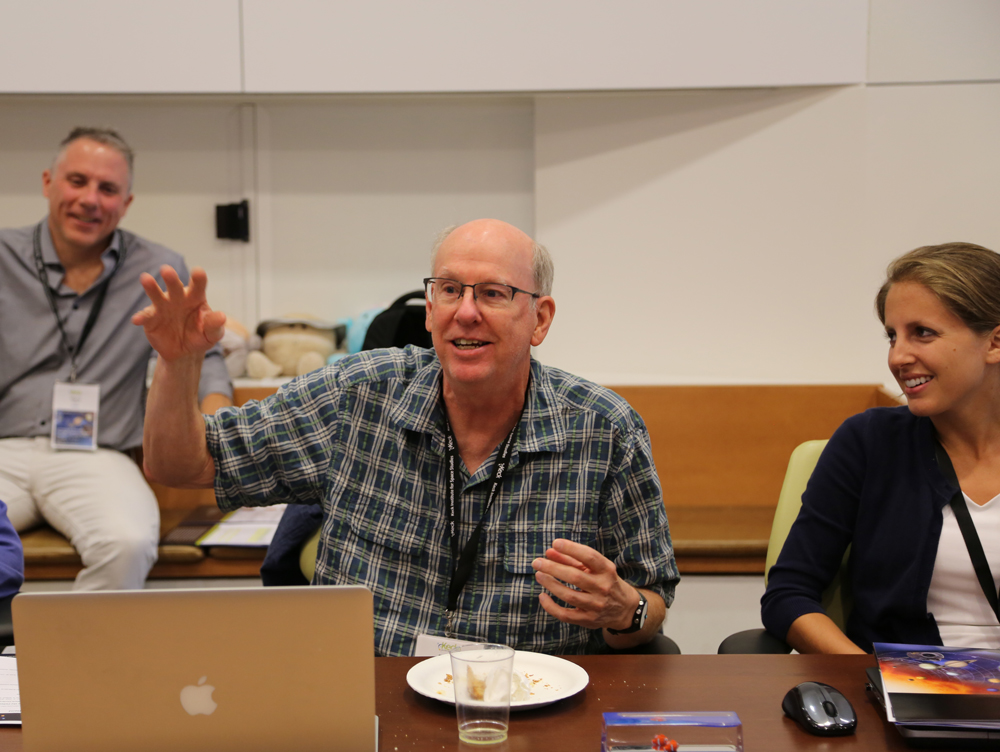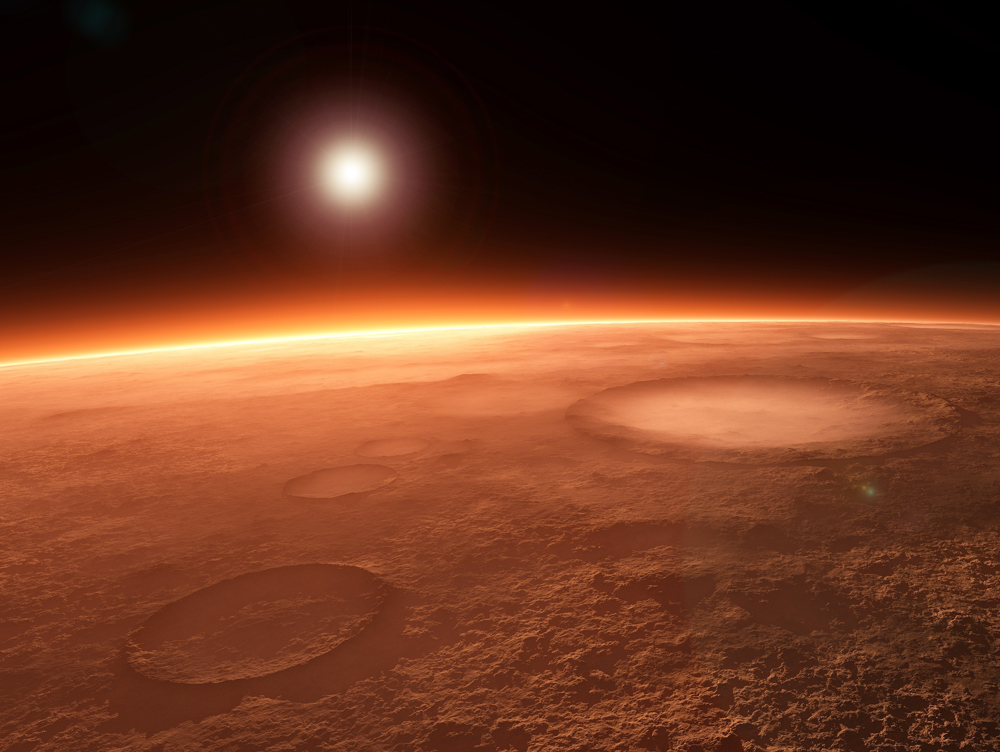In-situ resource utilization (ISRU) on Mars is a promising exploration strategy to minimize or even eliminate the need to transport the large quantities of supplies from Earth to Mars.
In the first Keck Institute Space Science workshop, “Addressing the Mars ISRU Challenge: Production of Oxygen and Fuel from CO2 using Sunlight”, the workshop team focused on the fundamental science and technology considerations of systems using photoelectrochemical conversion of in-situ Mars resources to oxygen and fuel. Specifically, three distinct systems were conceived and notional designs were established. These three approaches include:
- Non-aqueous system assuming only sunlight and CO2 as feedstock
- Aqueous system assuming sunlight, CO2, and Martian water
- Aqueous system assuming beamed microwave power, sunlight, CO2, and water for electrochemical water splitting and thermochemical methane production.
The second workshop will take place on September 19 - 20, with three main goals:
- Further refine the three system designs with much greater granularity
- Identify the key science and technology gaps for longer-term research and development efforts
- Establish performance metrics to allow for benchmarking these systems for comparison to other ISRU schemes.




















